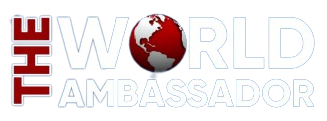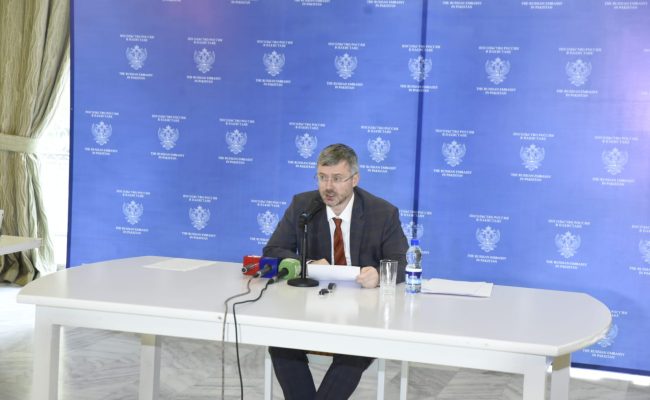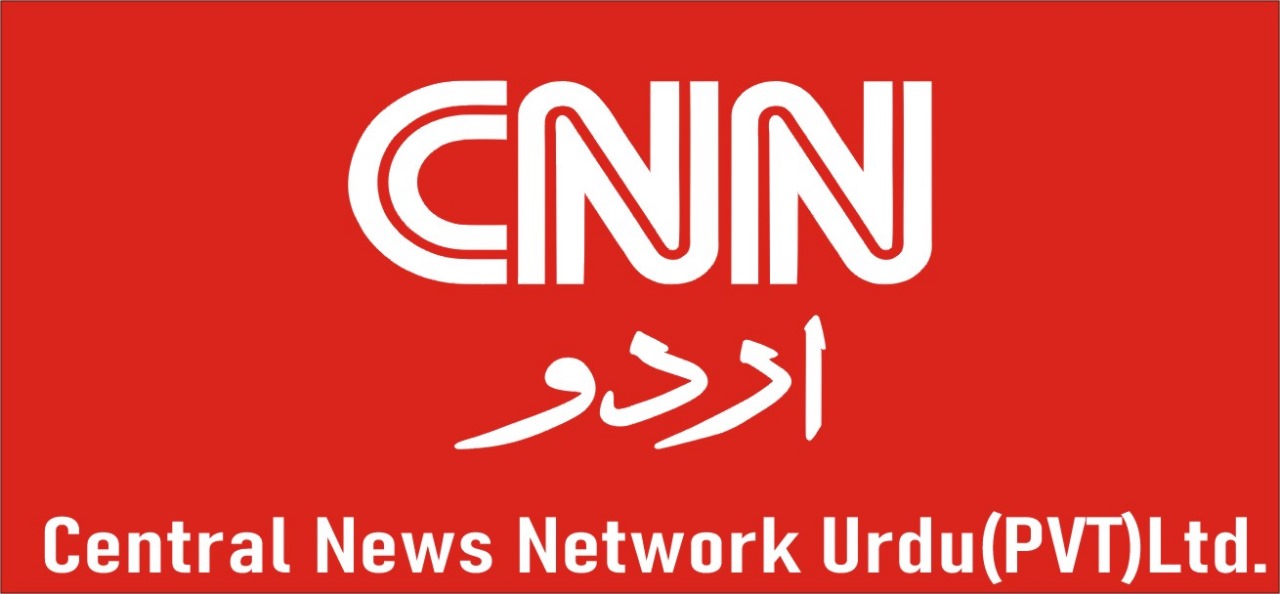
In a detailed media briefing on the situation in and around Ukraine, Russian Ambassador to Pakistan Albert P. Khorev provided an in-depth analysis of the conflict’s root causes, the role of Western nations, and the prospects for a peaceful resolution.
Ambassador Khorev traced the origins of the crisis to 2014, when, with support from the US and EU, an armed coup in Kiev brought radical nationalist forces to power. He accused the Kiev regime of violating human rights, particularly of ethnic Russians and Russian-speaking Ukrainians, while fostering Russophobia and glorifying Nazi war criminals.
“The transformation of Ukraine into a NATO-aligned military stronghold has posed a significant threat to Russia’s security,” stated the Ambassador.
Highlighting the substantial Western support for Ukraine, Ambassador Khorev revealed that over $350 billion in financial and military aid has been provided since the onset of the conflict. This includes the supply of advanced and increasingly destructive weaponry, such as cluster munitions and long-range missiles.
“The West continues to escalate the conflict by training Ukrainian forces, recruiting foreign mercenaries, and providing real-time intelligence,” said the Ambassador. He emphasized that these actions not only exacerbate the crisis but also pose broader regional security risks.
Ambassador Khorev noted recent amendments to Russia’s nuclear doctrine, broadening the scope of deterrence against military threats. He also mentioned the November 21 strike on Ukraine’s Yuzhmash facility, which included the combat testing of Russia’s Oreshnik ballistic missile in a non-nuclear hypersonic configuration.
“Future actions will depend on the threats posed to Russia’s security, including the potential targeting of military infrastructure in states supplying arms to Ukraine,” he warned.
He reiterated Russia’s commitment to a political and diplomatic resolution. He outlined key elements of Russia’s peace proposal, including Ukraine’s withdrawal from new Russian territories, recognition of territorial changes, renunciation of NATO membership, lifting of Western sanctions, and protection of Russian-speaking Ukrainians’ rights.
“We seek a definitive resolution, not a temporary ceasefire that would allow Ukraine to rearm,” he asserted, adding that the proposal aims for lasting peace in Europe and a new regional security framework.
Ambassador Khorev criticized the West’s silence on the deaths of Russian journalists and alleged systematic suppression of dissenting voices in Ukraine. He accused international organizations, including UNESCO and the Council of Europe, of failing to protect journalists and overlooking crimes against Russian media professionals.
“This selective approach undermines global trust in multilateral institutions and highlights the need for a balanced and independent media landscape,” he emphasized.
Ambassador Khorev dismissed Ukraine’s “peace formula,” labeling it as unrealistic and a means to achieve Russia’s capitulation. He criticized Western-organized peace summits as attempts to isolate Russia and promote anti-Russian coalitions.
The Ambassador welcomed peace efforts by Global South nations, including China, Brazil, and African states. He praised their proposals, which emphasize international law, rejection of unilateral sanctions, and the indivisibility of security.
“While these initiatives are promising, any sustainable solution must address the root causes of the conflict, including the West’s disregard for Russia’s security concerns and the eradication of Russophobia and nationalism in Ukraine,” he concluded.
Khorev underscored that achieving peace requires a commitment to the principles of the UN Charter, respect for human rights, and a willingness to address the geopolitical realities on the ground.


